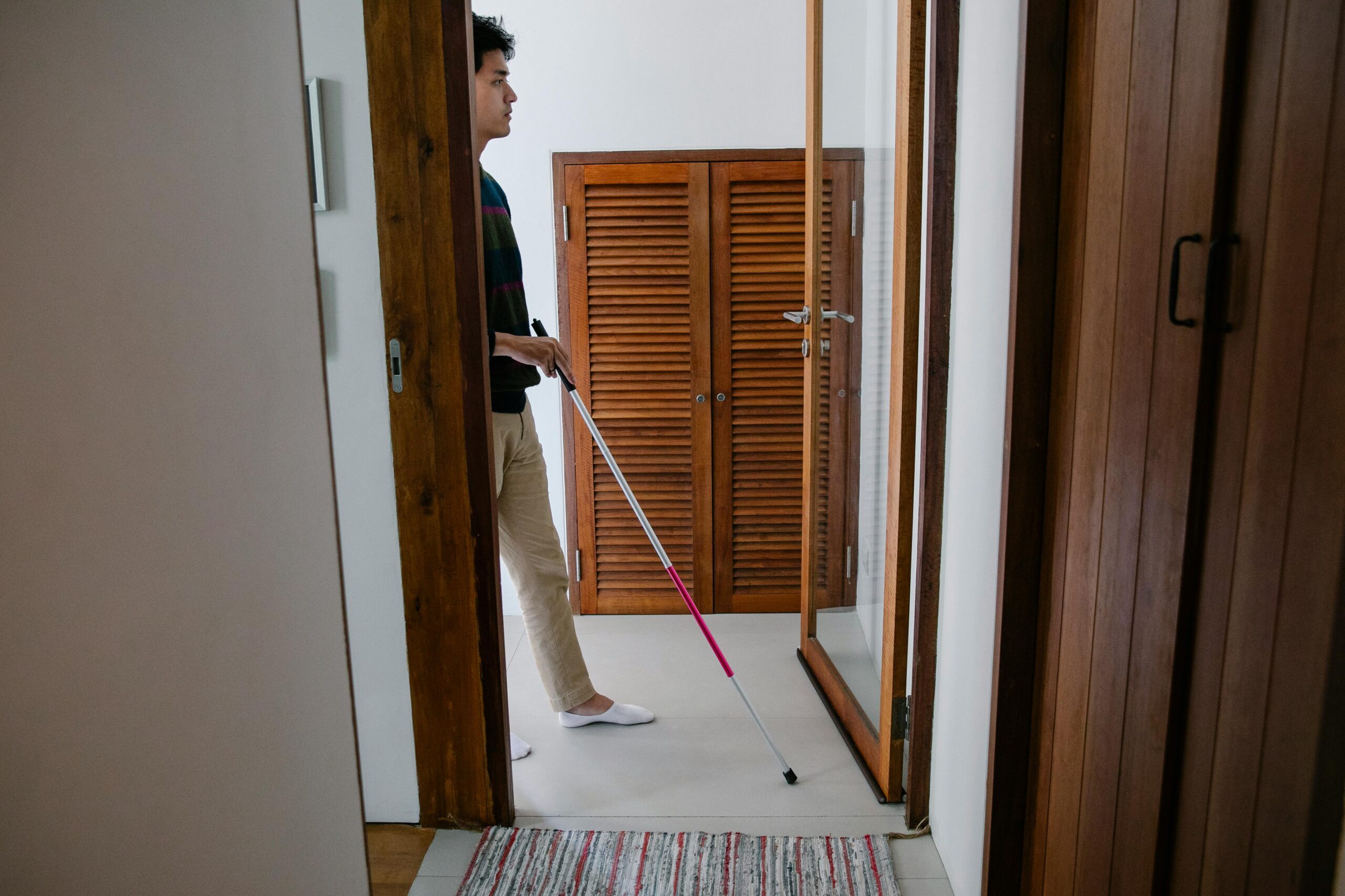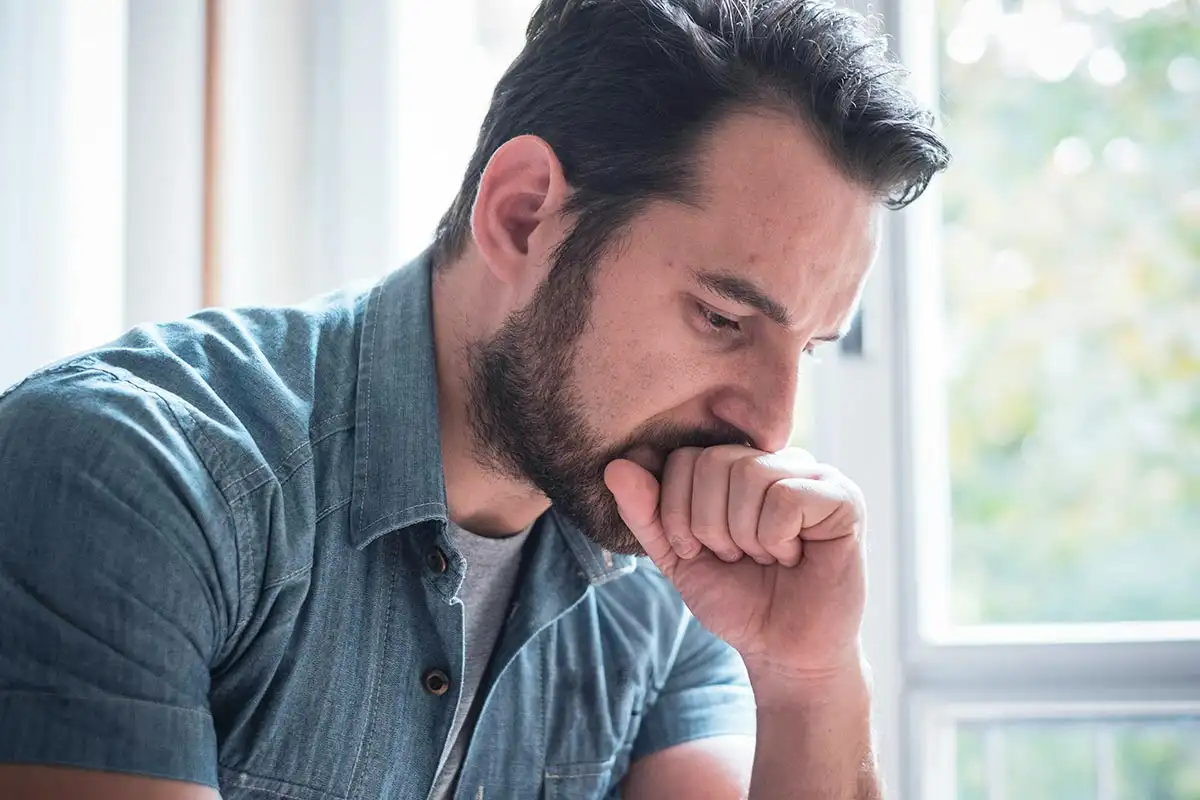
Your Guide to Virtual IOP in California: Access, Efficacy, and Support
Medically Reviewed by:

Dr. Marco M. Zahedi
Medical Director, Compassion Recovery Center

Dr. Michael Majeski
Licensed Psychologist (LP), Compassion Recovery Center
Table of Contents
Introduction to Virtual IOP and Addiction Recovery Support
The journey to overcoming addiction is deeply personal and often challenging, requiring courage, commitment, and comprehensive support. In today’s fast-paced world, especially in diverse and sprawling areas like California, accessing consistent and effective treatment can seem daunting. Traditional in-person programs, while valuable, may not be feasible for everyone due to work schedules, family responsibilities, transportation issues, or health concerns. This is where the innovative approach of Virtual Intensive Outpatient Programs (IOPs) comes into play, transforming how individuals can receive help for substance use disorders and co-occurring mental health conditions. A Virtual IOP California program offers a lifeline, bringing evidence-based therapy and robust support systems directly to you, wherever you are, through secure telehealth platforms.
The importance of accessibility in addiction recovery cannot be overstated. When treatment is difficult to reach, it creates an additional barrier for individuals already struggling. The goal is to make the path to recovery as smooth as possible. Support, in its many forms – professional, peer, and family – is the bedrock of sustained sobriety. It provides encouragement during tough times, accountability, and a sense of belonging, reminding individuals that they are not alone in their fight. Telehealth addiction treatment bridges the gap, making high-quality care more attainable than ever before. It allows for flexibility, privacy, and the ability to integrate recovery into daily life without major disruptions.
At Compassion Recovery Center, we understand the unique needs of individuals seeking freedom from addiction, particularly those in Orange County and throughout California. We specialize in providing remote drug and alcohol rehab services through telehealth, offering a compassionate, confidential, and effective alternative to traditional treatment. Our programs, including our highly structured Virtual IOP Program, are designed to empower you with the tools, knowledge, and support needed to build a lasting foundation for recovery. We believe that everyone deserves access to quality care, and our mission is to deliver it with understanding and expertise, right where you are. If you or a loved one is looking for remote drug rehab Orange County options, we encourage you to reach out today and explore how we can help.
This guide will walk you through everything you need to know about Virtual IOPs in California, exploring their components, benefits, effectiveness, and the comprehensive support systems they offer. We aim to provide clear, simple information to help you make informed decisions about your recovery journey. Healing is possible, and with the right support, a brighter, substance-free future is within reach.

Understanding Virtual IOP
Making the decision to seek help for addiction is a significant first step. Understanding the types of treatment available is crucial in choosing the path that best suits your needs. A Virtual Intensive Outpatient Program (IOP) is an increasingly popular and effective option, especially for those who require a structured treatment program but also need the flexibility to manage daily responsibilities like work, school, or family care. Let’s delve into what a Virtual IOP entails, how it differs from traditional in-person programs, and the specific benefits it offers to California residents, including those seeking a Remote IOP Orange County solution.
A Virtual IOP is a structured form of addiction treatment that provides comprehensive therapeutic services online. It’s “intensive” because it involves multiple hours of therapy and counseling per week, typically more than standard outpatient care but less than a residential or Partial Hospitalization Program (PHP). The “virtual” aspect means all services are delivered remotely via secure video conferencing, messaging platforms, and other digital tools. Key components of a Virtual IOP generally include:
- Individual Therapy: One-on-one sessions with a licensed therapist or counselor. These sessions focus on your personal history with addiction, underlying issues, triggers, coping mechanisms, and individual recovery goals. Techniques like evidence-based therapies for addiction recovery such as Cognitive Behavioral Therapy (CBT) or Dialectical Behavior Therapy (DBT) are often employed.
- Group Therapy: Regularly scheduled group sessions led by a therapist. These provide a supportive environment where individuals can share experiences, learn from peers, practice communication skills, and feel a sense of community. Topics often cover relapse prevention, stress management, emotional regulation, and building healthy relationships.
- Family Therapy (if applicable): Sessions involving family members to address how addiction has impacted the family system, improve communication, and build a supportive home environment for recovery.
- Psychoeducation: Educational workshops and materials about the nature of addiction, the science of recovery, mental health, coping strategies, and life skills.
- Case Management: Support in coordinating care, connecting with community resources, and addressing practical needs that may impact recovery (e.g., housing, employment).
- Relapse Prevention Planning: Developing a personalized plan to identify and manage triggers, cravings, and high-risk situations to maintain sobriety long-term. You can learn more about dealing with triggers here.
The primary difference between Virtual IOP and traditional in-person IOP lies in the delivery method. In-person IOP requires patients to travel to a treatment facility for scheduled sessions. While this model has its merits, such as face-to-face interaction and a dedicated treatment environment, it can also present challenges. Virtual IOP, on the other hand, eliminates the need for travel, allowing participants to attend sessions from the comfort and privacy of their own homes or any secure location with internet access. This distinction leads to several key advantages:
- Accessibility: Virtual IOP overcomes geographical barriers. For individuals in remote areas of California or those with limited transportation, online treatment makes vital services accessible.
- Flexibility: Sessions can often be scheduled around work, school, or childcare commitments, making it easier to integrate treatment into daily life. This is a significant benefit for busy professionals or parents. Learn how virtual IOP fits into a busy schedule.
- Comfort and Privacy: Receiving treatment in a familiar environment can reduce anxiety and stigma for some individuals. The privacy of home can make it easier to open up and engage in therapy.
- Cost Savings: Eliminating travel costs (gas, public transport, parking) and potentially reducing the need for time off work can make Virtual IOP a more affordable option.
- Continuity of Care: For individuals who travel or have unpredictable schedules, virtual options can provide more consistent access to care.
For California residents, the benefits of Virtual IOP are particularly relevant. California is a large and diverse state, and access to specialized addiction treatment can vary significantly depending on location. In urban centers like those in Orange County, traffic and busy schedules can make attending in-person sessions challenging. In more rural or underserved areas, quality treatment options might be scarce. Virtual IOP California programs, like those offered by Compassion Recovery Center, address these issues directly. They provide a consistent level of care across the state, ensuring that individuals from San Diego to Sacramento, and especially within our primary service area of Orange County, can access high-quality drug rehab programs and alcohol rehab programs without uprooting their lives. The ability to receive support while maintaining connections with work, family, and community can be incredibly empowering and contribute positively to long-term recovery. If you’re exploring telehealth addiction treatment, a Virtual IOP might be the ideal fit. We encourage you to start your free assessment to see if this program is right for you.
Access to Virtual IOP in California
Finding and enrolling in a Virtual Intensive Outpatient Program (IOP) in California is a straightforward process designed to get you the help you need with minimal stress. At Compassion Recovery Center, we prioritize making our Virtual IOP California services accessible and easy to navigate. Understanding the enrollment steps, eligibility, and how insurance and financial aspects are handled can empower you to take that crucial step towards recovery.
The journey to enrolling in a Virtual IOP typically begins with reaching out. Here’s a general outline of how to access programs like ours:
- Initial Contact and Confidential Inquiry: The first step is to contact the treatment provider. At Compassion Recovery Center, you can call us or fill out a confidential form on our website. This initial conversation is an opportunity for you to ask questions and for us to understand your situation. You can get help now by reaching out.
- Pre-Screening or Assessment: A qualified admissions counselor or clinician will conduct a pre-screening or a more comprehensive assessment. This is typically done over the phone or via secure video call. The purpose is to gather information about your substance use history, mental health status, current living situation, and treatment goals. This helps determine if a Virtual IOP is the appropriate level of care for you. You can often start your free assessment online.
- Insurance Verification: If you have health insurance, the treatment center will verify your benefits to determine coverage for Virtual IOP services. At Compassion Recovery Center, we assist with this process. You can easily verify your insurance online through our secure portal. Understanding California’s parity laws, which often mandate coverage for mental health and substance abuse treatment comparable to physical health, can be beneficial. We can help explain your benefits and any potential out-of-pocket costs.
- Treatment Planning: If Virtual IOP is deemed suitable and insurance/financial arrangements are clarified, a personalized treatment plan will be developed. This plan outlines the frequency and types of therapy sessions, program duration, and specific goals for your recovery.
- Onboarding and Technology Setup: You’ll receive guidance on how to access the virtual platform, ensure you have the necessary technology (computer/smartphone, internet connection, webcam), and understand the schedule and program expectations. We ensure this process is user-friendly, even if you’re not tech-savvy.
While Virtual IOPs are highly accessible, there are some general eligibility criteria and requirements to ensure the program’s effectiveness and your safety:
- Clinical Appropriateness: Virtual IOP is best suited for individuals who do not require medically supervised detox (though some programs, like ours, offer Outpatient Detox support) or 24/7 residential care. You should be medically stable.
- Motivation and Commitment: Successful participation requires a genuine desire to change and a commitment to attending sessions regularly and engaging actively.
- Safe and Stable Living Environment: A supportive and substance-free home environment is crucial for virtual treatment success. If your home environment is triggering or unstable, this will be discussed during the assessment to find potential solutions or alternative care options.
- Access to Technology: You’ll need a reliable internet connection and a device (computer, tablet, or smartphone) with a camera and microphone. Privacy during sessions is also important, so a quiet, confidential space is necessary.
- Basic Tech Literacy: While platforms are generally user-friendly, some comfort with using video conferencing tools is helpful. Support is usually available to help you get set up.
Navigating insurance coverage and financial aspects is a common concern. Most major insurance plans in California now cover telehealth services, including mental health and substance abuse treatment, due to increased demand and legislative support. The Mental Health Parity and Addiction Equity Act (MHPAEA) is a federal law that generally requires health insurers and group health plans to provide the same level of benefits for mental health and/or substance use treatment and services that they do for medical/surgical care. Compassion Recovery Center works with many PPO insurance plans. Our admissions team is skilled at working with insurance providers to maximize your benefits for telehealth addiction treatment. We encourage you to check insurance coverage with us directly. For those without insurance or with limited coverage, some centers may offer private pay options or sliding scale fees. It’s always best to discuss financial concerns upfront with the admissions team. We are committed to helping you understand your options and find a way to access the care you deserve for a remote drug rehab Orange County experience or elsewhere in California.

Efficacy of Virtual IOP
One of the most important questions for anyone considering treatment is: “Does it work?” When it comes to Virtual Intensive Outpatient Programs (IOPs), especially for something as critical as addiction recovery, understanding their effectiveness is paramount. The good news is that a growing body of research and real-world experience indicates that telehealth addiction treatment, including Virtual IOPs, can be just as effective as traditional in-person programs for many individuals. For those seeking a Virtual IOP California program, this means accessible, evidence-based care is a viable and successful option.
Numerous studies have explored the efficacy of telehealth for various mental health conditions and substance use disorders. While addiction treatment is complex and outcomes vary based on individual factors, research generally supports the following:
- Comparable Outcomes: Many studies have found that telehealth interventions, including virtual therapy sessions (both individual and group), yield clinical outcomes comparable to in-person services. This includes improvements in substance use patterns, mental health symptoms, and overall functioning. Patient satisfaction with telehealth services is also often reported as high.
- Strong Therapeutic Alliance: A key factor in successful therapy is the quality of the relationship between the therapist and the client (the therapeutic alliance). Research suggests that strong alliances can be effectively built and maintained through virtual platforms. Therapists skilled in telehealth can create a sense of connection and trust, which is vital for effective treatment.
- Increased Engagement and Retention: The convenience and accessibility of Virtual IOPs can sometimes lead to better engagement and retention in treatment compared to in-person programs. By removing barriers like travel time, childcare needs, or discomfort in clinical settings, individuals may find it easier to consistently attend sessions, which is crucial for progress.
- Effectiveness for Specific Therapies: Evidence-based therapies commonly used in addiction treatment, such as Cognitive Behavioral Therapy (CBT) and Motivational Interviewing (MI), have been shown to adapt well to virtual delivery. Online modules, video sessions, and digital tools can effectively deliver the core components of these therapies.
While large-scale, multi-year studies specifically on Virtual IOPs for addiction are still evolving as the modality grows, the foundational research on telehealth for mental health and substance use is very promising. Success stories from participants in virtual rehab California programs, like those at Compassion Recovery Center, further underscore this effectiveness. Clients often report appreciating the flexibility that allows them to continue working or caring for their families while receiving intensive support. They find comfort in their own environment and feel empowered by the skills they learn and apply in real-time to their daily lives. Many describe breakthroughs in virtual group therapy, finding connection and understanding with peers despite the physical distance. The ability to integrate coping skills learned in therapy immediately into their home environment can be a powerful catalyst for change. You can explore top 10 benefits of virtual rehab to understand more.
When comparing Virtual IOP with other treatment modalities, it’s important to understand that the “best” approach depends on the individual’s specific needs, circumstances, and preferences.
- Residential Treatment: Provides 24/7 care in a highly structured, substance-free environment. This is often recommended for individuals with severe addiction, unstable living situations, or co-occurring medical conditions requiring intensive monitoring. Virtual IOP is a step-down from residential care or an alternative for those who don’t require that level of intensity.
- In-Person IOP: Offers similar services to Virtual IOP but requires physical attendance at a facility. Some individuals may prefer the face-to-face interaction or find the structure of leaving home for treatment beneficial. However, Virtual IOP offers greater flexibility and accessibility, as discussed earlier.
- Standard Outpatient Therapy: Involves less frequent sessions (e.g., once a week). Virtual IOP is more intensive, providing a higher level of support and structure, which is often necessary in early recovery or for individuals needing more comprehensive care than standard outpatient can offer.
- Outpatient Detox: Can be a component of or precursor to Virtual IOP for those who need medical support to manage withdrawal symptoms but can do so safely at home. Compassion Recovery Center offers telehealth support for outpatient detox, which can seamlessly transition into our Virtual IOP. Read more about detoxing at home with telehealth support.
Support Systems in Virtual IOP
Recovery from addiction is not a journey meant to be walked alone. Robust support systems are fundamental to navigating the challenges of sobriety and building a fulfilling, substance-free life. Virtual Intensive Outpatient Programs (IOPs) are designed with this understanding at their core, incorporating multiple layers of support accessible through telehealth. For individuals in a Virtual IOP California program, this means having a dedicated team and a community of peers available, even from a distance. At Compassion Recovery Center, we emphasize the critical role of therapists, counselors, family, and peers in the recovery process, providing a comprehensive network of care through our virtual rehab California services.
The role of therapists and counselors is central to any effective Virtual IOP. These dedicated professionals are more than just facilitators of sessions; they are guides, educators, and unwavering sources of support. In a virtual setting, their responsibilities include:
- Building a Strong Therapeutic Relationship: Skilled telehealth therapists are adept at creating a safe, trusting, and empathetic space online. They use active listening, validation, and genuine care to connect with clients, fostering a strong therapeutic alliance essential for progress.
- Conducting Comprehensive Assessments: Therapists perform thorough assessments to understand each client’s unique history, patterns of substance use, co-occurring mental health conditions (like anxiety or depression, which we can address through our Mental Health Treatment services), strengths, and challenges.
- Developing Personalized Treatment Plans: Based on the assessment, therapists collaborate with clients to create individualized treatment plans. These plans outline specific, measurable, achievable, relevant, and time-bound (SMART) goals for recovery.
- Delivering Evidence-Based Therapies: Counselors utilize proven therapeutic modalities such as Online CBT therapy (Cognitive Behavioral Therapy), Dialectical Behavior Therapy (DBT), Motivational Interviewing, and trauma-informed care, adapting these techniques effectively for virtual delivery.
- Providing Individual and Group Therapy: Therapists lead both one-on-one sessions tailored to individual needs and group sessions that foster peer support and shared learning. They skillfully manage group dynamics online to ensure a productive and supportive environment for all participants.
- Monitoring Progress and Adjusting Treatment: Regular check-ins and progress monitoring allow therapists to adapt the treatment plan as needed, ensuring it remains relevant and effective throughout the client’s recovery journey.
- Teaching Coping Skills and Relapse Prevention: A significant part of therapy involves equipping clients with practical skills to manage cravings, deal with triggers (see Coping with cravings: 7 techniques to stay on track), regulate emotions, and prevent relapse.
Family and peer support are also vital components integrated into many Virtual IOPs. Addiction profoundly impacts families, and involving loved ones (with the client’s consent) can significantly enhance recovery outcomes. Virtual family therapy sessions can help educate family members about addiction, improve communication, establish healthy boundaries (learn about setting boundaries to protect your sobriety), and create a supportive home environment conducive to recovery. Rebuilding trust and fostering understanding within the family unit is a key focus.
Peer support within a Virtual IOP often comes through group therapy sessions. These groups offer a unique form of support where individuals can:
- Share Experiences: Connecting with others who have similar struggles reduces feelings of isolation and shame. Hearing others’ stories can be validating and inspiring.
- Learn from Others: Peers often share practical advice, coping strategies that have worked for them, and insights gained from their own recovery journeys.
- Develop Social Skills: Group therapy provides a safe space to practice healthy communication, assertiveness, and interpersonal skills in a sober context.
- Gain Accountability: Being part of a group can foster a sense of responsibility and accountability to oneself and others in the group. You can explore tips for staying accountable in a virtual program.
- Build a Sober Network: These connections can extend beyond the program, forming the foundation of a new, supportive sober network.
Services Offered by Compassion Recovery Center
At Compassion Recovery Center, we are dedicated to providing comprehensive, evidence-based, and accessible addiction treatment through our specialized telehealth services. Our goal is to meet you where you are, offering a range of programs tailored to individual needs, with a strong focus on our Virtual IOP Program. We serve clients throughout California, with a particular understanding of the needs within Orange County. Our services are designed to address not only substance use but also co-occurring mental health conditions, ensuring a holistic path to recovery. Key services include our Intensive Outpatient Programs, Cognitive Behavioral Therapy (CBT), Medication-Assisted Treatment (MAT) support, and virtual couples counseling.
Our Intensive Outpatient Program (IOP), delivered virtually, forms the cornerstone of our offerings. This program is ideal for individuals who require a structured and supportive treatment environment but need the flexibility to maintain their daily responsibilities such as work, school, or family care. A typical Virtual IOP at Compassion Recovery Center includes several hours of programming per week, usually spread across 3 to 5 days. The core components are:
- Individual Therapy: Confidential one-on-one sessions with a licensed therapist, focusing on personalized recovery goals, processing underlying issues, and developing coping strategies.
- Group Therapy: Professionally facilitated group sessions that provide a safe space for clients to share experiences, learn from peers, build sober social skills, and gain mutual support. Topics often include relapse prevention, stress management, emotional regulation, and communication skills. You can get an idea of what a day in an IOP looks like here.
- Family Program: We understand addiction impacts the whole family. Where appropriate and with client consent, we offer family involvement to help heal relationships, improve communication, and build a supportive home environment.
- Psychoeducation: Workshops and educational sessions on topics such as the disease model of addiction, brain chemistry, trigger identification, mindfulness, and healthy lifestyle choices.
- Case Management: Assistance with coordinating care, accessing community resources, and addressing practical life challenges that may impact recovery.
- Aftercare Planning: Developing a robust plan for continued support and relapse prevention after completing the IOP, which may include referrals to step-down programs or community support groups.
Cognitive Behavioral Therapy (CBT) is a foundational evidence-based therapy used extensively at Compassion Recovery Center, including in our Online CBT therapy sessions. CBT is a type of psychotherapy that helps individuals identify and change destructive or disturbing thought patterns that have a negative influence on behavior and emotions. In the context of addiction treatment, CBT is highly effective because it:
- Identifies Triggers: Helps clients recognize the situations, people, thoughts, and feelings that lead to substance cravings or use.
- Challenges Negative Thoughts: Teaches individuals to question and reframe unhelpful or inaccurate thoughts associated with substance use (e.g., “I can’t cope without it,” “One drink won’t hurt”).
- Develops Coping Skills: Equips clients with practical strategies to manage cravings, deal with stress, solve problems, and navigate high-risk situations without resorting to substances.
- Modifies Behavior: Focuses on changing behavioral patterns associated with addiction and reinforcing positive, healthy behaviors.
- Prevents Relapse: By understanding thought-behavior links and developing coping skills, individuals are better prepared to prevent and manage potential relapses.
Medication-Assisted Treatment (MAT) is an evidence-based approach that combines FDA-approved medications with counseling and behavioral therapies to treat substance use disorders, particularly opioid and alcohol use disorders. While Compassion Recovery Center is a telehealth provider focusing on therapy and counseling, we understand the vital role of MAT. We can support clients who are engaged in MAT treatment online through referrals to and collaboration with qualified medical prescribers who can manage the medication aspect via telehealth or in person. MAT helps to:
- Reduce cravings and withdrawal symptoms.
- Normalize brain chemistry affected by addiction.
- Block the euphoric effects of opioids or alcohol.
- Improve patient survival and retention in treatment.
Virtual Couples Counseling is another valuable service we offer. Addiction often strains relationships, leading to broken trust, communication breakdowns, and emotional distress. Virtual couples counseling provides a platform for partners to:
- Address the impact of addiction on their relationship in a safe, mediated environment.
- Improve communication skills and learn to express needs and feelings constructively.
- Work on rebuilding trust and intimacy.
- Develop strategies to support their partner’s recovery while also maintaining their own well-being.
- Establish healthy boundaries and expectations within the relationship.
- Navigate the challenges of recovery as a team.
Advantages of Choosing Compassion Recovery Center
When you’re seeking help for addiction, choosing the right treatment provider is a critical decision. You want a center that not only understands the complexities of substance use disorders but also offers a compassionate, effective, and accessible approach to care. Compassion Recovery Center stands out as a leading provider of remote drug rehab Orange County services and telehealth addiction treatment throughout California. Our commitment to specialized virtual care, personalized treatment, and a holistic approach offers distinct advantages for individuals and families navigating the path to recovery.
One of the primary advantages of choosing Compassion Recovery Center is our expertise and experience in remote addiction treatment. We are not simply a traditional center that has added telehealth as an afterthought; remote care is our specialty. This focus allows us to:
- Utilize Best Practices in Telehealth: Our clinicians are specifically trained and experienced in delivering therapy and support effectively through virtual platforms. We understand the nuances of building therapeutic rapport online and engaging clients meaningfully in a digital environment.
- Employ Secure and User-Friendly Technology: We use HIPAA-compliant, secure technology to protect your privacy and ensure a smooth, accessible treatment experience. We provide support to help clients navigate the technology if needed.
- Offer Specialized Virtual Programs: Our Virtual IOP Program is carefully structured to maximize the benefits of remote delivery, ensuring comprehensive care that rivals in-person alternatives. We are constantly refining our approach based on the latest research and client feedback.
- Focus on Accessibility: Our specialization in telehealth means we are dedicated to breaking down barriers to treatment. Whether you’re in a bustling part of Orange County or a more remote area of California, our services are designed to reach you.
At Compassion Recovery Center, we firmly believe that recovery is not a one-size-fits-all process. This is why we emphasize personalized treatment plans and a holistic approach. When you begin your journey with us, we conduct a thorough assessment to understand your unique history, specific substance use patterns, co-occurring mental health conditions (through our Dual Diagnosis Treatment focus), personal strengths, support systems, and recovery goals. Based on this comprehensive understanding, we develop a tailored treatment plan that addresses your individual needs. This personalization ensures that the therapy, support, and resources you receive are directly relevant to your situation, increasing the likelihood of successful outcomes. Our holistic approach means we treat the whole person, not just the addiction. We recognize that substance use is often intertwined with mental health challenges (addressed via Mental Health Treatment), past trauma, lifestyle factors, and social influences. Our programs incorporate strategies to improve overall well-being, including stress management techniques, emotional regulation skills, and guidance on building a healthy, balanced life in recovery. We aim to empower you with the tools for lasting change in all areas of your life.
The experiences of those who have walked this path before can be incredibly insightful and encouraging. While privacy is paramount, the positive testimonials and feedback from past clients of Compassion Recovery Center speak volumes about the effectiveness and compassionate nature of our care. Clients often highlight:
- The genuine care and expertise of our therapists and staff.
- The flexibility of the virtual format, allowing them to balance treatment with life’s demands.
- The supportive and non-judgmental environment fostered in group sessions.
- The practical skills and insights gained that have empowered their recovery.
- The feeling of being understood and supported throughout their journey.
Conclusion: Your Path to Recovery Starts Here
Navigating the challenges of addiction can feel overwhelming, but it’s crucial to remember that recovery is possible and help is readily available. Throughout this guide, we’ve explored the significant benefits and remarkable accessibility of Virtual Intensive Outpatient Programs (IOPs), particularly for residents of California. From understanding the core components of a Virtual IOP California program to recognizing its proven efficacy and the comprehensive support systems it offers, it’s clear that telehealth is revolutionizing addiction treatment. The flexibility to receive high-quality care from the comfort of your home, the ability to integrate treatment with daily life, and the access to specialized services like Online CBT therapy and support for MAT treatment online make virtual options an incredibly powerful tool for healing.
Compassion Recovery Center is at the forefront of providing these innovative services. We are dedicated to offering expert, empathetic, and personalized telehealth addiction treatment to individuals and families throughout California, with a special focus on serving the Orange County community. Our Virtual IOP Program is designed to empower you with the knowledge, skills, and support needed to overcome substance use and build a sustainable, fulfilling life in recovery. We understand the courage it takes to seek help, and we are committed to making your journey as smooth and supportive as possible. The convenience of a Remote IOP Orange County option means you don’t have to choose between getting help and managing your existing commitments.
If you or someone you care about is struggling with drug or alcohol addiction, we want you to know that you are not alone, and there is hope. The first step, often the hardest, is reaching out. We encourage you to take that brave step today. Let go of any myths about addiction treatment that may be holding you back (learn more about myths about addiction treatment) and embrace the opportunity for change. Your recovery journey is unique, and we are here to walk alongside you, providing the professional guidance and compassionate care you deserve.
To learn more about our Virtual IOP or other remote treatment options, or to begin the enrollment process, please don’t hesitate to get in touch. You can Contact Us for a confidential conversation with one of our caring admissions specialists. They can answer your questions, provide more information about our programs, and help you verify your insurance online. You can also start your free assessment to determine if our services are the right fit for your needs. The path to a healthier, substance-free life is within reach. Get help for substance abuse and start your recovery journey today with Compassion Recovery Center. We are here to support you every step of the way.
What is a Virtual Intensive Outpatient Program (IOP)?
How effective is Virtual IOP compared to in-person treatment?
What services are included in a Virtual IOP?
How can I enroll in a Virtual IOP in California?
Does insurance cover Virtual IOP programs?
What support systems are available in Virtual IOP?
How does Compassion Recovery Center ensure privacy and confidentiality in virtual sessions?
Struggling to balance life while needing support? Get expert virtual care and start your recovery journey, anytime, anywhere.
We’re learning more each day.
Researchers and doctors are making exciting progress in understanding mental health and addiction—bringing hope to millions.
Your genes don’t define you.
Genetics can play a part, but they don’t decide your future. Mental health is shaped by many factors, and healing is always possible.
There's no one-size-fits-all.
The right treatment often includes a mix of therapy, medication, and compassionate care—tailored just for you.


















